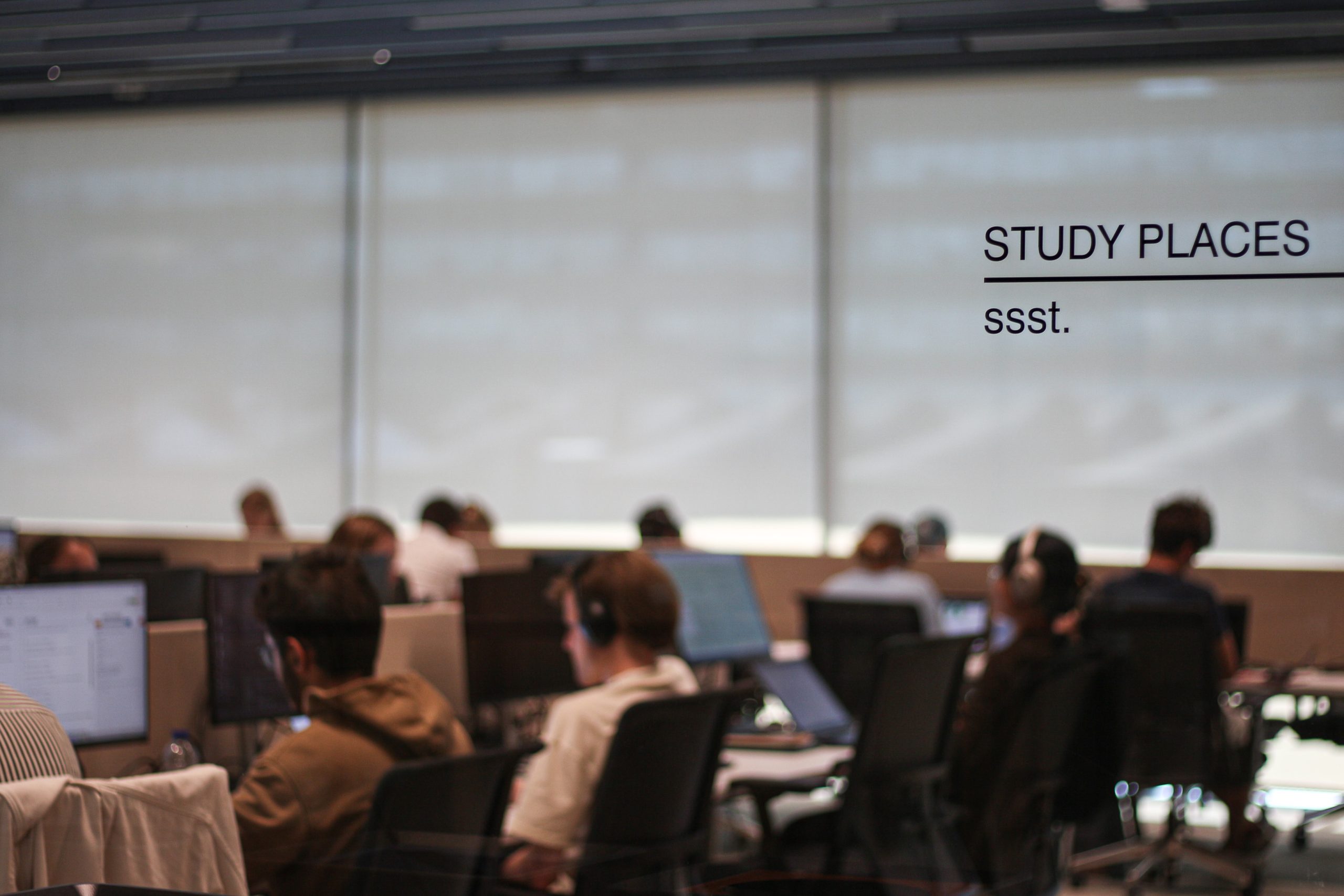Given the last election results, the conversation about international students in the Netherlands – as well as the internationalisation of universities in the Netherlands – is as relevant as ever. Will the Netherlands continue to welcome international students? And do international TU Delft students worry about the current political climate?
(Photo: Justyna Botor)
English only
In November, Delta took part in a nationwide survey on how welcoming international students at universities feel. One of the findings was that they are feeling less welcome in the face of the current political debate.
To explore what these feelings entail, Delta asked five international students who took our survey to discuss their thoughts and experiences in greater depth. Three of them were only prepared to share their opinions using an alias as they were afraid of being targeted by people who may disagree with them.
Give-and-take
Aerospace Engineering student Ren* believes that integration is a give-and-take. He says he felt very welcome in the Netherlands, especially at TU Delft, and has yet to face any hostility or negative sentiment from professors or students at TU Delft or from the Dutch.
Ren’s social circle includes both fellow internationals as well as Dutch students. But while his social circle is diverse, his social life remains predominantly English language. “I had planned to study Dutch before coming over,” he said. His reason for not continuing? “I heard from some friends that it is harder to learn a new language if you are stuck studying all the time.”
- In his latest column, Dap Hartmann asked why we offer bachelor programmes to the rest of the world at the cost of Dutch students. The column was cause for great debate on social media.
Ren agrees that language learning is very valuable and even necessary for long-term residents. “I think that in the case of internationalisation, the newcomers should show a degree of respect for the local culture. They should make an effort to learn the local language and way of life. Integration is a give-and-take, and it is only if both sides do both that the community will greatly benefit.”
Language barrier
Master’s student Stephanie* (Civil Engineering) agrees. She is currently prioritising learning Dutch and recognises how important language is. “It is the right thing to do when living in a country with a different language.”
Being from the United States she assumed that – like back home – being international was normal and that all students, Dutch and international, would be in one melting pot in the classroom setting. Instead, she observed a divide between the two groups. In Stephanie’s case, the language barrier presented a big hurdle and made these feelings stronger.
“TU Delft is open to English speakers, but some professors and support staff could be more aware about using English in their classrooms after a lecture.” In some of the open question sessions Stephanie attended, she saw that some students would ask lecture-specific questions in Dutch and the professor would respond in Dutch. Other Dutch students listening to the conversation would be able to understand the new information, but, to her frustration, Stephanie and other non-Dutch-speaking classmates would miss out.
‘I’ve heard Dutch students say internationals don’t want to integrate’
Increased urgency
To avoid this problem, bachelor student Jenny at the Faculty of Electrical Engineering, Mathematics and Computer Science came to the Netherlands a year before her programme started. She wanted to learn Dutch and be more integrated before starting her studies.
She says that her Dutch is at a “pretty decent level”. While this has made her time at TU Delft easier academically, socially, and culturally, it has also opened doors she didn’t expect. Jenny says negative perceptions often prevail when it comes to the integration of international students into Dutch academic communities.
“People don’t assume I’m an international student, so I have the opportunity to hear what they think of us. I’ve heard Dutch students say internationals are lame and don’t want to integrate.” She also noted that some of her Dutch peers get irritated at having to speak English, especially at social occasions and in lectures.
Corroborating Stephanie’s experience, Jenny has noticed professors getting increasingly irritated at having to speak English in lectures, especially when a non-Dutch student doesn’t understand something or needs clarification.
Since Jenny seems more integrated than the average student, she is better equipped to understand the election outcome. She says that the outcome is not surprising. “I was highly aware of it,” she said, “but I did not expect such a victory by the PVV (Freedom Party, a right wing political party).” But instead of driving her away, it has motivated her to integrate even further. “It is more urgent for me to start the process of getting Dutch citizenship,” she says. “I didn’t have the same urgency as I do now. My desire to have political representation has peaked.”
Discrimination
Bachelor student Juan (Aerospace Engineering) is more concerned. “I mostly worry about changes being made to admission procedures in the Netherlands that discriminate against internationals.” He also worries about the possibility of being affected by new policies. “Even though I find it unlikely, many of my friends who are studying here from abroad are worried about the implications it may have for their future here.”
The biggest change he foresees in the near future is that finding housing will become increasingly difficult. “I believe that this will have a huge impact on many internationals who may want to study here. It will make the Netherlands an unattractive place to study, when previously it was seen as a fantastic and welcoming option. And I think it’s a huge mistake.”
Reduce
Fellow bachelor student Alex (Aerospace Engineering) has an opposite viewpoint. “Every three to six months there seems to be some kind of declaration from a Minister decreasing the number of international students. “I don’t think it’s that important, as it’s just populist rhetoric, but this rhetoric is indicative of a broader shift that could eventually impact policy.”
‘It’s easy to push aside foreign students who don’t have the means or time to defend themselves’
He therefore is curious about the outcome of a recent motion to reduce English-language programmes at universities. “I think the Executive Board may agree to just remove some of the less popular programmes.”
Confusing
Both Juan and Alex discussed the results with fellow students shortly after the exit polls came out. Juan: “The internationals were especially worried about how it may affect them, especially since Dutch politics is kind of confusing so it’s hard to predict what will happen next.”
Alex nuances this. “On campus I see rows and rows of students studying their asses off. For hours and hours straight. They jump from one exam period to the next, and there is a serious culture of systematic overwork and burnout. How can you expect international students who are under such great pressure to care about politics?
One thing that I have seen during my time in the Netherlands is that our demographic – the internationals – is not being defended. Whenever something becomes political, it’s easy to push aside foreign students who don’t have the means or time to defend themselves.”
- The real names of Ren, Stephanie and Jenny are known to the editors. They chose an alias as they wanted to feel comfortable sharing their opinions about the society in which they live without risking being targeted by people who may disagree with them.





Comments are closed.